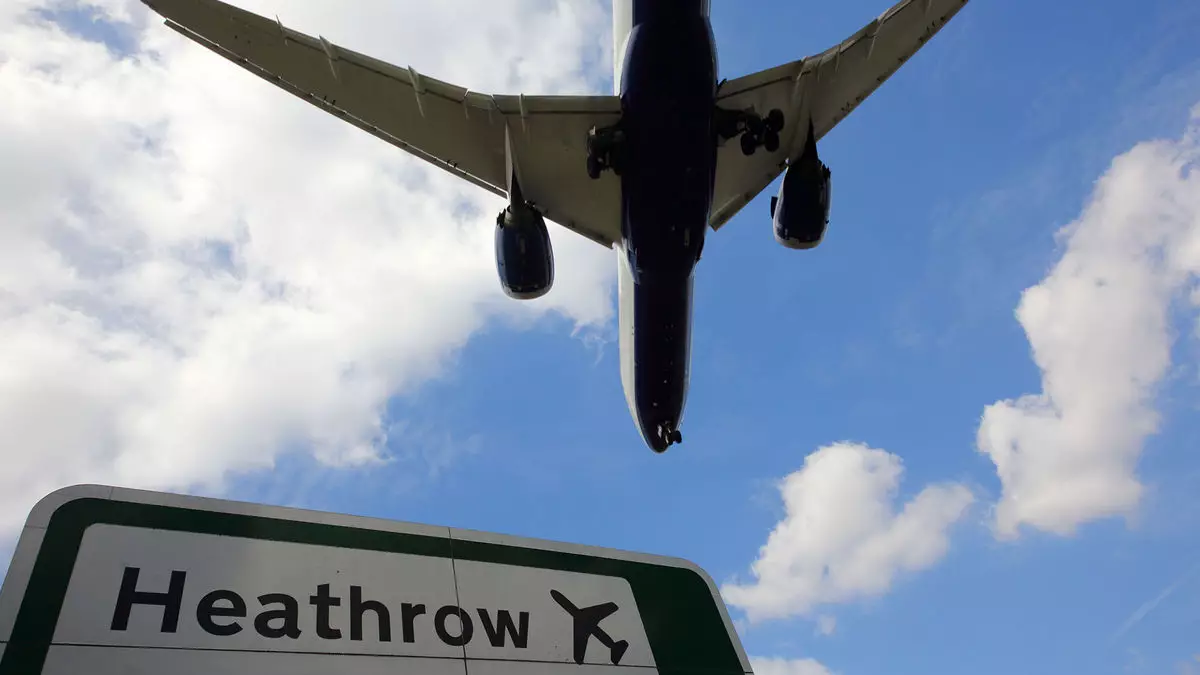As travelers worldwide head out for their much-anticipated holidays or business trips, the prospect of a seamless travel experience is always a coveted dream. The ongoing pilot program at London Heathrow Airport represents a leap forward in transforming the often burdensome ordeal of connecting international flights. Initiated on February 4, this innovative approach allows passengers from Dallas-Fort Worth via American Airlines and Atlanta through Delta or Virgin Atlantic to transfer gates without the hassles of reclaiming checked baggage or undergoing redundant security screenings. The monumental shift in operational procedures is a promising glimpse into a future where international travel is both efficient and pleasurable.
Gary Tomasulo, American Airlines’ chief security officer, articulated the positive ramifications of this pilot program. With 100 to 150 connecting passengers on each flight from Dallas to Heathrow, the feedback has been overwhelmingly positive. By slashing the usual transfer time by approximately 30 to 40 minutes, this initiative is reducing stress for travelers navigating an already convoluted system.
Understanding the Traditional Hassles
Traditionally, U.S. travelers en route to another destination via the UK have faced a cumbersome necessity of retrieving their checked baggage and undergoing a fresh security screening before boarding their connecting flight. This process starkly contrasts the streamlined efficiency often found in Europe, where transitions between connections tend to be less fraught. In a world longing for convenience, the One-stop Security pilot program stands out as not just an improvement, but a revolutionary paradigm shift.
By allowing American Airlines passengers traveling to British Airways flights to board directly from Terminal 3 to Terminal 5—without retrieving their checked bags—the program mirrors the domestic connection experience in the U.S., all while ensuring security remains uncompromised. Such innovations are emblematic of how modern air travel can evolve in response to the urgent need for a more pleasant traveler experience.
Technological Innovations and International Collaboration
The One-stop Security pilot program has received the stamp of approval from the Transportation Security Administration (TSA) under a framework established by Congress in late 2022. This legislative move allowed for exceptional trials at international airports, a critical first step toward standardizing security protocols across borders. As these initiatives unfold globally, a vision emerges where enhanced technological solutions can expedite procedures without compromising safety.
Notably, American Airlines is also a pioneer in the Customs Remote Baggage Screening Initiative, which has begun in conjunction with services from Sydney to Los Angeles. This improvement, however, only scratches the surface when considering the overall scope of the One-stop Security program, which eliminates the necessity for rescreening—a significant advancement. The upcoming implementation that facilitates passengers flying from Heathrow to U.S. hubs presents both an exciting improvement and operational complexity as they navigate through border control measures.
A Balance of Safety and Efficiency
Proponents of the enhanced security framework argue that it is not merely a convenience but a vital enhancement to aviation security. As Ryan Propis of the U.S. Travel Association aptly noted, the initiative is a “game changer,” establishing a new standard for global security practices. The alignment of security protocols not only smooths the travel experience but may also facilitate improved safety metrics across international air travel.
Additionally, this initiative could result in greater resource efficiency within the TSA and U.S. Customs, allowing these agencies to redeploy staff to areas where they are needed most. Such expansions could extend to prime global airports such as Amsterdam, Frankfurt, and Charles de Gaulle in Paris, highlighting the program’s potential to reshape the future of international air travel significantly.
The Road Ahead: Ongoing Challenges and Future Prospects
Despite the momentum, challenges abound. In a recent report, U.S. Travel highlighted concerns over the sluggish pace of implementation, calling for a proactive stance by the U.S. and international partners. Coordination between the TSA and Customs is essential, as remaining obstacles could stall the momentum necessary for broader adoption of these groundbreaking procedures. Stratagems to expand the program must be agile and responsive to the evolving needs of the international traveler.
American Airlines is poised to lead this transformation. With aspirations to expand once procedures are refined in Dallas and Atlanta, the airline envisions an ambitious growth trajectory reaching key hubs like New York JFK and Miami. An unwavering commitment from stakeholders across the aviation sector can catalyze a global shift toward a more unified and sophisticated system for air travel, ushering in an era where international connections are hassle-free and inviting.
Each initiative moving forward serves as a testament to the aviation industry’s dedication to innovating the travel landscape. Embracing collaboration and leveraging technology, the goal of creating a seamless, secure travel experience is on the cusp of realization.


Leave a Reply